|
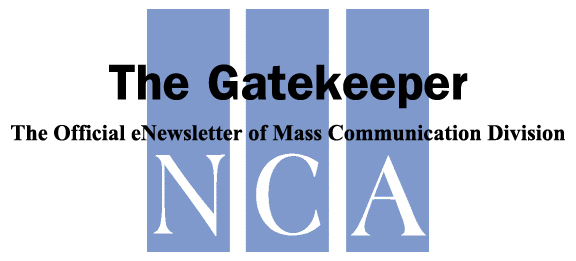
<<click here for archives >>
Vol. 18, No. 3
Convention Issue
November 2013
Published three times annually by the Mass Communication Division of NCA.
Publications/Web Editor - Nicholas David Bowman, West Virginia University
Sponsored by:
--- Join NCA's Twitter Feed at http://twitter.com/NatComm ---
-- MCD on Facebook Click on the Facebook image below to join our group --

487 MCD Facebook Friends and growing strong...join today!
|
In this issue:
Welcome from the Chair
Santa Barbara, CA -- Dear Mass Communication Division Members,
This year's meeting of the National Communication Association is just around the corner (November 21-24, 2013). I invite you to join us in Washington, DC where you will find an enriching program of panels from the Mass Communication Division. Among the many sessions you will attend, I would like to highlight three in particular and encourage your participation. First, is the MCD Business Meeting. Please make your voice heard and serve the division by attending and taking part in the Division's leadership. This session is on Friday, November 22nd, from 9:30-10:45 in the Diplomat Ballroom (Omni Shoreham). Immediately following the Business Meeting, join me in celebrating the scholarship of our top scholars by attending the Top Competitive Papers Session (Friday, 11am, Diplomat Ballroom) and the Top Competitive Student Papers Session (Friday, 12:30pm, Diplomat Ballroom). I hope you are able to attend.
In my last message as Chair of the Division, I would also like to take this opportunity to thank all of the officers of the Mass Communication Division for the hard work and effort they put in to ensure the success of this year's convention. Special appreciation goes to the Research Committee for planning this year's impressive program - specifically: David Rhea (Chair), Brent Malin, Meagan Sanders, and Hugh Curnutt. Your commitment to the Mass Communication Division and its members is greatly appreciated. It has been my pleasure working with all of you. Thank you.
See you in Washington, DC!
We look forward to another year of strong scholarship in the Mass Communication Division!
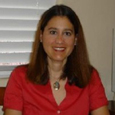 Dana Mastro Dana Mastro
Chair, Mass Communication Division
University of California, Santa Barbara
mastro@comm.ucsb.edu
<<back to
top>>
Top papers for NCA 2013 Announced
Springfield, IL -- As part of this year's paper competition, the top three faculty and top four student papers submitted to NCA Orlando will be given prime presentation spots during the 2012 convention. You are encouraged to attend these panels and congratulate these rising and established scholars.
Top Four Papers in Mass Communication
Friday, November 22
11:00 am to 12:15 pm
Diplomat Ballroom - Lobby Level |
| Laughing through our tears: Rhetorical Tensions in Roger & Me |
Jennifer Borda, University of New Hampshire |
I analyze Roger & Me in the context of its historical and critical reception, and the consequences for the film's potential as social critique and political commentary. I argue that Roger & Me functions as a cinematic jeremiad advanced by a misunderstood modern-day prophet, and that the film's conflicting visions of the American Dream creates an unstable sense of how viewers should respond to it as a critique of the socio-economic realities of global capitalism |
| Egoism versus altruism in television content for young audiences |
Robert Lewis & Natalie Mitchell, University of Texas - Austin |
This research integrates psychological frameworks for both altruistic (intuitive morality) and egoistic (basic needs) motivations to examine depictions of motivational incongruities (e.g., moral dilemmas) in television content for young audiences. Findings suggest that the frequency of depicted motivational incongruities increases as audience target-age increases. In addition, findings show that most depicted motivational incongruities involve both egoistic motives versus altruistic ones. Discussion centers on implications for research on media and morality, as well as entertainment theory. |
| Are u with some1? Using text message experience sampling to examine the relationship between co-viewing, enjoyment, and eudaimonia |
Elizabeth L. Cohen, Nicholas David Bowman, and Alexander Lancaster, West Virginia University |
Watching television with others is a common experience, yet the role of co-viewing is often overlooked in models of media uses and effects. Furthermore, few studies of media use are conducted in natural settings, limiting the ecological validity of this research. In conjunction with an online survey about emotional contagion, experience sampling via text message was used to examine college students' television viewing and co-viewing behaviors in their daily lives. Respondents also reported on their emotional experience, enjoyment, and eudaimonia. Momentary assessments were taken three times a day for one week. Data suggest that (a) co-viewing mediated the effect of emotional contagion on emotional intensity, (b) the presence of others during viewing predicted emotional intensity, and (c) emotional intensity, in turn predicted enjoyment and eudaimonia. These results provide some preliminary evidence that social context could be partially responsible for excitation transfer effects on media enjoyment. |
| Distinguishing cultivation theory from cultivation effects: An exploration of television, violent movies, and beliefs about real-world crime |
Karyn Riddle, University of Wisconsin - Madison |
This article presents arguments in favor of disentangling research conducted under a cultivation framework into two distinct areas: studies testing cultivation theory, and studies testing cultivation effects. Data from of a nationwide survey are used to provide empirical tests of both perspectives. In testing cultivation theory, the data reveal a relationship between overall television viewing habits and beliefs about real-world crime. In testing cultivation effects, the data also reveal an indirect relationship between watching violent movies and beliefs about real-world crime. Furthermore, the data suggest that memory vividness and accessibility are mechanisms through which violent movies affect real-world beliefs. Implications for cultivation theory, cultivation effects, accessibility, the drench hypothesis, and memory vividness are discussed. |
Top Four Student Papers in Mass Communication
Friday, November 22
12:30 pm to 1:45 pm
Diplomat Ballroom - Lobby Level |
| Putting your best brain forward: Commercial brain imaging and the semiotics of improvement |
Ellen Defossez, University of Pittsburgh |
We are continually told, whether the tone is enthusiastic or cautionary, that we are entering the age of the 'neurosociety' - a society in which advanced technologies yield unprecedented access to and understanding of the human brain, and thus, the material basis of all human behavior. Because of their striking and highly appealing visual nature, rhetoric of science scholars frequently warn that brain images are particularly vulnerable to misuse. Curiously, the rhetoricians doing the warning do not often explicate what those potential misuses are or may be. The same cannot be said of the medical community, which has loudly criticized the scientific validity of neuroscience work being done by Dr. Daniel Amen. Building upon the work of rhetoricians of science who have followed brain images as they move from scientific contexts to popular contexts, this paper follows brain images one step further, as they move from popular to commercial contexts. To do so, the website www.AmenClinics.com will be rhetorically analyzed, with a particular interest in the following questions: How does the rhetoric of brain images in commercial contexts differ from the rhetoric of brain images in popular (mass mediated) contexts? How does Amen position brain images such that they are simultaneously generalized (across highly variable human brains) and personalized (to the individual consumer)? What are the possibilities for and/or constraints upon patient-consumer agency in the neurosociety? |
| Accent representations in the media: Information processing and effects |
Marko Dragojevic, University of California, Santa Barbara |
The effects of media characters' accents on viewers and the cognitive processes underlying those effects are examined. It is argued that characters' accents are socially meaningful signals that automatically capture viewers' attention. They can influence how viewers perceive, the extent to which they identify with, and what information they remember about characters. Additionally, media representations of accents can shape viewers' accent-based stereotypes. Several propositions regarding accent representations in the media are advanced. |
| The right way to eat: Practical governmentality through semi-homemade cooking with Sandra Lee |
Hojin Song, University of Iowa |
Through examination Semi-Homemade Cooking with Sandra Lee (SHCS), I aim to broaden the idea of Food Network's governmentality. The show's taste and lifestyle management operates by practicality and seduction rather than by sanctioning or control through expert intervention. SHCS's function as surveillance technology rationalizes the ways in which Americans consume industrialized and pre-processed food and endorse a "practical" lifestyle which focuses on efficiency and individual responsibility as the ideal model. |
| The sportiest catwalk on Earth: How sport and fashion collide on the Olympic stage |
Susannah Cobb McMonagle, Temple University |
Data for this study come from a qualitative analysis of media coverage of the Summer Olympics from 2000, 2004, 2008, and 2012. Specifically, a textual analysis was conducted of international newspapers beginning with the two months leading up to each Olympic Games and the month that the actual Olympic Games occurred. Emergent from the data are themes surrounding this important moment of promotional culture in the twenty-first century, namely the hypercommercial fashion-sport collision, where athletes function as "super models," and where media democratization opens up the conversation to a broader range of voices. |
Join us in celebrating these papers, and all of the other fine scholarship submitted to the Mass Communication Division.
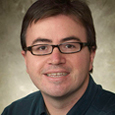 David Rhea David Rhea
Research Chair (2013)
Governors State University
drhea@govst.edu
<<back to
top>>
NCA seeks nominations for officers
Siolam Springs, AR -- AWant to be more active in the Mass Communication Division of the National Communication Association? Submit your name for nomination!
The Mass Communication Division of the National Communication Association is gathering names of those members who are interested in being nominated for open positions. If you submit your name it will appear on the ballot at our next meeting in Washington, DC. Elections will take place at this time. Please send nominations to Kara Gould (KGould@jbu.edu). Please consider self-nomination. Remember, only members of the MCD of NCA are eligible to serve. The following list details the positions for which we are accepting nominations and a brief description of the positions.
NOTE: Names submitted for Vice-Chair Officer Elect and Secretary Elect are not nominations, they are for the consideration of the committee which will make the final nominations for these positions.
- Vice-Chair Elect (4 years of service):
- In the first year of service the Vice-Chair Elect will oversee the teaching and service awards.
- In the second year the Vice-Chair Elect becomes the Vice-Chair and he/she must attend the program planning meeting at NCA, distribute the call for papers, and plan the program (with assistance from others in the organization). The Vice-Chair must also represent the MCD on the Legislative Council.
- The Vice-Chair Elect then becomes the Chair and must preside over MCD business meetings and at Executive Committee meetings and represent the MCD on the Legislative Council.
- In the final year of service he/she will serve as Immediate Past-Chair and represent the MCD on the Legislative Council and act as an adviser to the Chair.
- Graduate Student Representative (1 year term):
- The Graduate Student Representative will represent the Division at any meetings held by the Association in which graduate student interests are discussed and in which graduate students are invited to participate.
- Nominating Committee of the Division (2 positions, 2 year terms):
- This committee is responsible for presenting a slate of potential candidates to the membership during the business meeting.
- They also hand out, collect, and count ballots.
- The nominee who receives the most votes will be chair of the committee and therefore a member of the Executive Committee.
Several positions are members of the Executive Committee, please note the additional requirements of these positions Executive Committee Positions Vice-Chair Elect of Research Committee in three years Vice-Chair Officer Elect
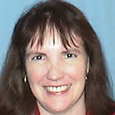 Kara Gould Kara Gould
Nominations Committee Chair
John Brown University
KGould@jbu.edu
<<back to
top>>
Dr. Amy Jordan selected as recipient of the 2013 NCA Mass Communication Division Teaching Award
College Station, TX -- In my role as Vice Chair-Elect of the division, I had the pleasure of chairing this year's award selection process. It is my utmost pleasure to share that Dr. Amy Jordan has been selected as the recipient of the 2013 NCA Mass Comm. Division Teaching Award. She is the Associate Director of the Annenberg Public Policy Center and Adjunct Professor at the Annenberg School for Communication at the University of Pennsylvania. Based on the very impressive nomination package with support letters from students and colleagues that describe Dr. Jordan's dedication and commitment to excellence in teaching and mentoring, the MCD office-bearers unanimously find her most deserving of this honor. Please join us at the MCD business meeting where we look forward to honoring her at the awards ceremony.
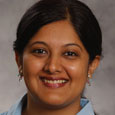 Srividya Ramasubramanian Srividya Ramasubramanian
Vice Chair-Elect
Texas A&M University
srivi@tamu.edu
<<back to
top>>
ECA launches new Facebook page
Pittsburgh -- In October 2013, the Eastern Communication Association - the oldest professional communication association in the United States - officially launched their first official social media platform. The page (https://www.facebook.com/ECACOMM) is tailored for current and perspective ECA members but is open to anyone with an interest in the study of communication. In its first month, the page hit the 100 "likes" mark and has featured links to recent scholarship and commentary on a variety of issues related to the communication scholarship - including many research, service and teaching resources.
Headquartered in Pittsburgh, ECA brings together communication scholars from several East Coast states stretching from West Virginia north and east through to Maine (coverage map here). While focused on the eastern United States, the annual conference regularly hosts scholars and professionals from around the world. This year's conference, "Communities of Dissent: A 'Lively Experiment' in Dialogue, Diversity, and Discourse" will be held April 23 to 27 in Providence, Rhode Island.

<<back to
top>>
GCA hosts first North American conference
Calumet, IN -- The Global Communication Association (GCA) is pleased to announce that its Seventh Annual Conference (22-24 November 2013), and First in North America, will be hosted by the School of Social Communication and Leadership, Faculty of Human Sciences, Saint Paul University, Ottawa, Canada. Established in 2007, the GCA promotes academic research in global studies among major universities around the world. It facilitates joint projects and research opportunities among scholars, researchers, and students. Particularly, it explores the myriad opportunities and challenges in the areas of teaching, learning, communication development, globalization, mass media, and international cooperation.
A fundamental goal of this conference, therefore, is to showcase the various spheres of our current global communication galaxy, evident in the multi-disciplinary framework of human communication, and to demonstrate different emerging issues in the practice of media and technology. Given the cross- and inter-disciplinary nature of this conference's theme, scholars, activists, and professionals are invited to submit papers that draw on the various understandings of our communication galaxy, and address (but not limited to) the following topics:
- Access to information, free speech, and freedom of expression
- Communication and media ethics
- Crisis communication
- Globalization, culture, and digital divide
- Health communication
- Identity, ethnicity, hybridity, gender, and Diaspora
- Imperialism and communication history
- International, transnational, and intercultural communication
- Media labour, literacy, activism, and hacktivism
- New media, ICTs, and international development
- Political economy of media and communication
- Religion and media
- Social change, democracy, and media reforms
- The right to communicate and communication rights
The conference keynote speakers include Dr. Yahya R. Kamalipour, Founder and President of GCA; Professor Graham Murdock, Loughborough University, UK; and Professor Vincent Mosco, Professor Emeritus of Sociology at Queen's University, Canada. For further conference information and registration details visit www.globalcomassociation.com or http://ustpaul.ca/en/global-communication-association-7th-annual-conference-_1345_17.htm.

<<back to
top>>
Carrie Chapman Catt Center for Women and Politics accepting applications for women and politics research prize
The Carrie Chapman Catt Center for Women and Politics in the College of Liberal Arts and Sciences at Iowa State University is pleased to announce the competition for the 2013 Carrie Chapman Catt Prize for Research on Women and Politics.
This annual competition is designed to encourage and reward scholars embarking on significant research in the area of women and politics. Numerous proposals from a variety of academic disciplines are received each year. Proposals are blind-reviewed by a faculty committee.
The prize includes a $1,500 cash award for each project selected. Honorable mention prizes of $750 per project may also be awarded.
Research projects submitted for prize consideration may address any topic related to women and politics. Scholars at any level, including graduate students and junior faculty members, may apply.
To be considered for the 2013 prize, applicants should submit the following materials, postmarked by November 29, 2013:
- Completed cover sheet
- Biographical statement for author(s) (one page or less for each author)
- Four (4) copies of the project description (5-10 pages, double spaced, 12-point font):
- Proposal title
- 150-200 word abstract summarizing its purpose and content
- Discussion of relevant theory, contributions to literature in the field and methodology; other relevant information may also be included
- Statement and itemized budget describing how the Catt Prize will contribute to the research project
- Timetable for completion of the project
- Bibliography (not part of the 5-10 page limit)
- As proposals are blind-reviewed, do not include author names in the project description.
Mail (do not fax or e-mail) packet to:
Carrie Chapman Catt Center for Women and Politics
309 Carrie Chapman Catt Hall
Iowa State University
Ames, IA 50011-1305
For more information, contact the center at cattcntr@iastate.edu.

<back to
top>>
The Popular Culture Studies Journal debuts online
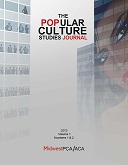 Greenville, PA -- The Midwest Popular Culture Association / American Culture Association (MPCA/ACA) is pleased to announce the launch of a new journal in the field of popular culture studies. Greenville, PA -- The Midwest Popular Culture Association / American Culture Association (MPCA/ACA) is pleased to announce the launch of a new journal in the field of popular culture studies.
Popular culture is at the heart of democratic citizenship. It serves as an engine driving technology, innovation, and information, as well as a methodological lens employed by the many fields that examine culture, often from an interdisciplinary perspective. Managed by The Midwest Popular Culture Association / American Culture Association (MPCA/ACA), The Popular Culture Studies Journal is an academic, refereed journal for scholars, academics, and students from the many disciplines that study America and American culture. The journal serves its membership and scholars globally who recognize and support its mission based on expanding the way we view popular culture as a fundamental component within the contemporary world. The first volume and issues, edited by Bob Batchelor (Thiel College) are available here.
<back to
top>>
CONFERENCES AND CALLS
Call for Papers
2nd Latin America ICA Conference
Universidade de Barasilia
26-28 March 2014
Deadline: 20 November 2013
The 2nd Latin America ICA Conference, organized by the Post-Graduate Program of Communication Faculty of the University of Brasilia (FAC / UNB), co-organised with the International Communication Association (ICA), will be held in Brasilia / Brazil, 26-28 March, 2014.The conference will take place at the Campus Darcy Ribeiro, University of Brasilia, located in the North Wing of the Brazilian capital city. The event is supported by the Latin American Communication Researchers Association (Alaic), the Brazilian Interdisciplinary Studies of Communication Society (Intercom) and the Brazilian Journalism Researchers Association (SBPJor).
The conference aims to:
- contribute to the dissemination of regional and international communication research, and develop regional/international academic and research partnerships;
- create a space for dialogue for the positions of researchers and scholars who share an interest in the processes of communication;
- promote dialogue among different academic traditions, open to different schools of thought within communication in Latin America and other parts of the world.
Deadlines
- The online submission of original papers and panel proposals should be e-mailed by November 20, 2013, until 23:59 Brasilia time.
- It is recommended that submitters avoid sending proposals in the last days before the closing date.
Conference Chair:
Professor Luiz C. Martinoica2014@unb.br
For more information see the full call attached to this e-mail or click here to view online
<<back to
top>>
Call for Papers
BEA 2014 Research Symposium -- Digital Technology and the Future of Broadcasting: A Global Perspective
Las Vegas Hotel + Casino
6 April 2014
Deadline: 1 December 2013
Announcing the BEA 2014 Research Symposium -- Digital Technology and the Future of Broadcasting: A Global Perspective
Paper Deadline: Received by December 1, 2013
Symposium: Sunday, April 6, 2014 | Las Vegas Hotel + Casino
Research Symposium Chair: John V. Pavlik, Northwestern University in Qatar, john.pavlik@northwestern.edu
Digital technology is fundamentally reshaping broadcasting in the U.S. and around the world. This symposium will feature both domestic and international research examining the consequences and implications of technological change for broadcasting. Questions to be considered include what is the impact of digital technology on: 1) the structure of broadcasting organizations and regulation, 2) the nature of broadcast content or programming and how it is delivered at home and abroad, 3) engagement and interaction of the public with broadcasting and social and mobile media, and 4) the reshaping of revenue models for broadcasters in the U.S. and globally. Papers may explore setting an agenda for research and the implications of digital technology for broadcasting education.
To submit a paper, visit the submission site. Click here for more information.
About the BEA Research Symposium
Now in its 7th year, BEA's Research Symposium has become a focal point of BEA's research community and is held in conjunction with BEA’s annual convention each April. Past symposium chairs have included the most distinguished researchers in their field and have covered cutting-edge topics in the areas of media & the social self, sports, economics, media & morality, "TechnoPolitics" and entertainment. The success of the Symposium launched a book series in 2010, published by Routledge. In addition to a paper competition, the day-long symposium has a series of presentations and panels led by senior scholars.
<<back to
top>>
Call for Abstracts
ICA Pre-Conference "Beyond the Pixels: A Look at Digital Games"
Deadline: 1 December 2013
Digital games are an integral aspect of many lives - they’re in social networks, they’re on mobile phones, and they are, as ever, on television and computer screens. Their influence is not limited to the screens or the devices in which they exist, but can be experienced well beyond their original digital footprint.
The goal of the 2014 pre-conference, “Beyond the Pixels,” is to take it one step further and encourage scholars to think outside the box. This pre-conference will be a space to think about the marks that digital games are making on our world. Submissions should look within the game, outside the game, and around the game for their inspiration. Careful consideration of the influence of specific elements of the game design itself, such as avatars, sound, user interfaces, types of game play, are welcome. We encourage innovative challenges to the notion of digital games as having a singular influence on the user, and the implications for that influence as it relates to broader society. Considerations for the infrastructures that have developed around games and continue to influence games, as well as explorations of the communities that develop around, within, and beyond games, are also encouraged.
Potential pre-conference topics include but are not restricted to:
- Game content
- Game design choices and their implications
- Game elements such as avatar, sound, and user interface
- Solo vs. social game play experience
- Cross modal games
- Game analysis from critical to analytics
- Innovative methods for studying uses and applications of games
- Impact of designing games for educational, health, moral, or commercial gain
- Academic vs. industry game research
- Game research methods
Push the boundaries. Go beyond the pixels.
Further information on the pre-conference can be found at: http://icagames.org, and on the ICA main conference at www.icahdq.org.
Extended Abstracts
Anyone interested in presenting at the pre-conference is invited to submit an extended abstract between 1000-1500 words in APA 6th style to the pre-conference organization committee before 23:59 EST, December 1, 2013. The abstracts will be subject to a double blind peer review process; therefore all identifying author information should be removed from the abstract. Notification of acceptance will be sent by February 1, 2013.
To submit, please e-mail a PDF version of your extended abstract with title as an attachment to preconference@icagames.org. When submitting the abstract, please also include a separate cover page including the title of your extended abstract, along with your name, title, department/organization, address and e-mail information.
Submission of work in progress is also welcome as long as the work can be completed by the month of the pre-conference. The extended abstracts submitted for the pre-conference should not have been submitted to any other competitions in the ICA's main conference or any other venue. The pre-conference submissions will be refereed and programmed separately from ICA’s main conference.
All those who are accepted to present their extended abstract should register for the ICA pre-conference by April 3, 2014.
Please note that accepted extended abstracts may be published in the on-line pre-conference proceedings. Those who wish to be considered for publication should let the pre-conference organization committee know in their e-mail submission whether or not they want to be included in the proceedings.
About ICA and the Game Studies Special Interest Group
The International Communication Association (ICA) is an academic association dedicated to advancing the high quality scholarly study of human and mediated communication since 1950. ICA aims to facilitate excellence in academia by facilitating exchange among various cultures, nations, and disciplines. As of 2012, ICA has more than 4300 members in over 80 countries.
The Game Studies special interest group has been a platform for scholars worldwide specializing in rigorous research in digital games and gaming as a new form of media since 2006.
More information on ICA can be found at www.icahdq.org/. More information on the ICA Game Studies Special Interest Group can be found at http://icagames.org
<<back to
top>>
Call for Abstracts
ICA Pre-Conference "Communication Science - Evolution, Biology and Brains 2.0: Innovation in Theory and Methods"
Deadline: 10 January 2014
Sponsored by:
Mass Communication Division, Rene Weber & Lance Holbert
Information Systems Division, Prabu David & Kevin Wise
Communication and Technology Division, Kwan Min Lee & James Danowski
Health Communication Division, Mohan Dutta & Kevin Wright
Interpersonal Communication Division, Tim Levine & Ascan Koerner
Description:
The goal of this pre-conference is to bring together scholars who are working across sub-fields of communication studies using evolutionary theory, neuroscience and other biological measures to address core questions in communication studies. A critical mass of scholars are now employing such methods to advance theory and application within communication studies. Furthermore, biological paradigms include additional questions and methods that can be added to our research agenda, however, incorporation of biological explanations and methods can also lead to new questions. Three upcoming special issues on biological/neuroscientific paradigms in Communication (see http://www.medianeuroscience.org/) highlight the importance of this perspective in our field. In addition to plenary talks given by invited senior scholars in the area, the pre-conference participants will share new data and ideas and discuss a vision for how communication studies can best leverage such new theorizing and study paradigms moving forward.
In particular, this pre-conference is looking for abstracts presenting either data or theory using biological paradigms in the following areas or questions:
- Data illustrating the use of biological paradigms to measure explicit and implicit processes that color our evaluations of the media, other people, groups and ourselves
- Data or theory including the use of evolutionary and/or biological paradigms to study interpersonal communication
- Data or theory speaking to what we can learn by combining biological methods with information gained in the new media environment
- Data or theory linking biological measures to health relevant attitudes, beliefs and behaviors
- Explication of biological mediators that may link the mediated environment to health and policy relevant outcomes of interest to our field
- Data and theory addressing how biological paradigms directly serve as catalysts for updating taken-for-granted conceptions about the communication process
- Data or theory that speak to how we can optimally combine methods to answer core questions in communication science that would be difficult to answer otherwise
- Other cutting edge data, theory and methods that bring together biological perspectives with core questions in communication science
Extended Abstracts:
If you are interested in presenting a theoretical paper, data, or research project maximizing the impact of biological paradigms in communication science, you are invited to submit an extended abstract of 500-750 words - excluding references - to the pre-conference organization committee before 23:59 EST, January 10, 2014. Each potential presenter may submit multiple papers for consideration, however, the first author must be present to discuss the findings if selected.
To submit please e-mail a PDF version of your abstract to conference organizers at conference@medianeuroscience.org. In your e-mail please include the following information: Author names, e-mail addresses, institutional affiliations, and short description of author expertise.
We will have both longer paper presentations (15-20 minutes) and a “data-blitz” in which we present a large number of very brief findings or concept pieces from all participants (2-4 minute summaries). We hope that this will stimulate discussion and potential future collaborations.
Venue and Costs:
The pre-conference will take place at the conference hotel in Seattle.
We anticipate the following costs to participants:
- Undergraduate and doctoral students: 35$ (USD)
- Post-docs and independent researchers: 85$ (USD)
- Faculty: 95$ (USD)
- A small amount of financial assistance may be available for those with need
These fees will cover venue, coffee breaks, lunch and audiovisual costs.
Program & Speakers:
Following a lively first annual pre-conference in London, we plan to continue the format of including a mix of senior and junior scholars sharing their latest data and theory. The conference will be scheduled to include full paper presentations (15-20 minutes in length) as well as substantial time for shorter data-blitz presentations. We will also plan plenty of time for discussion amongst pre-conference participants in panels and informal opportunities for networking (e.g., at lunch).
Organized by:
Allison Eden (VU University Amsterdam, a.l.eden@vu.nl)
Emily Falk (University of Pennsylvania, falk@asc.upenn.edu)
Kory Floyd (Arizona State University, kory@asu.edu)
René Weber (University of California Santa Barbara, renew@comm.ucsb.edu)
Download a copy of the pre-conference flyer here.
<<back to
top>>
Call for Proposals
ICA Pre-Conference "Technologies of Sex and Gender: Queer Theories and Subjects"
Deadline: 20 January 2014
Sponsored by the Gay Lesbian, Bisexual & Transgender Studies Interest Group
9 am- 4 pm, May 22, 2014
University of Washington, Department of Communication
Cost: Free
This ICA preconference brings together scholars, activists, and artists working on gender, sexuality, communication, media, and technology to examine, debate, and plan new projects, including:
- Investigating how the strategies activists and artists have developed in this field can transform academic research practice, as well as how academics can contribute to activist and artistic technology projects
- Providing an interdisciplinary environment in which LGBT, queer, and gender-nonconforming technology scholars, activists, and artists can network with each other, learn about current work in these fields, forge partnerships, and develop new collaborative projects
- Creating applications, games, and art that explore, celebrate, or undermine sexualized and gendered subjectivities.
- Researching how LGBT, queer, and gender nonconforming populations employ technologies in specific historical and cultural contexts (particularly by looking at the intersections of gender, race, nationality, class, and sexuality in these contexts)
- Discussing how queer, transgender, and feminist theories can be brought to bear on technology research, and how these fields can and must transform each other in the process
- Exploring how queer, transgender, and feminist theories can be integrated into technology design practice
- Ascertaining how scholars have used and can use technologies to study sexual- and gender-nonconforming communities, including their own
The preconference’s goal is to provoke encounters that would set in motion future collaborations and networks among artists, activists, and scholars. It utilizes the “unconference” format, in which participants, rather than organizers, decide on the agenda from among their own submitted proposals. This allows for more intensive interaction, higher-level conversations, and a more engaged, productive experience than traditional academic conferences.
SCHEDULE AND FORMAT:
- Today: You read this CFP
- By January 20: You submit a Session Leader or Participation proposal to ica.glbt@gmail.com. See below for a description of the proposal format.
- February 1: The organizers will send an acceptance letter to everyone who has submitted a proposal. All proposals will be posted on the Technologies of Sex and Gender website.
- February 1-April 30: All applicants comment online on the proposals, voting for the sessions they are likely to attend and offering suggestions for changes and additions.
- May 10: The organizers create and post a working schedule for the preconference and notify session applicants of the likelihood of their session being included.
May 22: The unconference
- The first morning session will introduce the unconference format. Attendees will take part in an open vote on the schedule, making suggestions, changes, or additions. The schedule will be finalized in this first session, after which the other sessions will begin. Depending on level of interest and number of attendees, there may be simultaneous sessions.
- Sessions will proceed throughout the morning following the proposals, but with an openness to exploring new directions that may organically arise (often new sessions are added throughout the day, sessions are combined, or break-out groups are formed over the course of unconferences).
- During the lunch break, attendees will give a series of “Speed Presentations”: 1- to 2-minute, rapid-fire presentations about one of their current projects. These are intended as very brief introductions, not extended discussions. Attendees will have an opportunity to contact each other later should they want to learn more about or join a specific project.
- Afternoon sessions will proceed, following the same structure as the morning sessions.
- At the end of the day, we will lead a concluding session in which attendees can share and integrate the day’s explorations
SUBMITTING A PROPOSAL
If you wish to participate in the unconference, please submit either a Session Proposal or a Participation Proposal.
* Session Leaders will submit a 300 word proposal of a conversation topic to explore, a research question to develop, a problem to grapple with, a skill to teach, a technology application to demonstrate, or an artwork to present. Each proposal should give enough information to help attendees decide which sessions to vote for and participate in. In particular, Session Leaders are encouraged to suggest how their proposal fits with the unconference theme and to explain their expertise and experience. Those who propose a session will be expected to arrive prepared to facilitate that session.
* Participants will also submit 300 word proposal, including a biographical statement describing their interests in the preconference and an idea for a 2-minute rapid-fire research presentation.
All proposals should address the conference themes described above. Sessions should be of interest to communication scholars, but we warmly encourage interdisciplinary, transdisciplinary, multimodal, or media-based endeavors.
Session Leader and Participation proposals should be submitted by January 20, 2014 to: ica.glbt@gmail.com
The unconference is co-sponsored by the Popular Communication, Feminist Scholarship, Ethnicity and Race in Communication, Global Communication and Social Change, Communication History, and Game Studies Divisions/Interest Groups. It is also supported by the Department of Communication at the University of Washington, the School of Media and Communication at Temple University, The Stranger, the School of Interdisciplinary Arts & Sciences at UW Bothell, and the Greater Seattle Business Association.
The organizers are Adrienne Shaw (Temple University), D. Travers Scott (Clemson University), and David Phillips (University of Toronto).
<<back to
top>>
Call for Papers
Communication Yearbook 39
Deadline: 15 February 2014
Dear Colleagues:
I am writing to solicit manuscripts for consideration in Communication Yearbook 39. Below is a short description of the call for papers for CY 39. CY 39 is a forum for the exchange of interdisciplinary and internationally diverse scholarship relating to communication in its many forms. Specifically, we are seeking state-of-the-discipline literature reviews, meta-analyses, and essays that advance knowledge and understanding of communication systems, processes, and impacts. Submitted manuscripts should provide a rigorous assessment of the status, critical issues and needed directions of a theory or body of research; offer new communication theory or additional insights into communication systems, processes, policies and impacts; and/or expand the boundaries of the discipline. In all cases, submissions should be comprehensive and thoughtful in their synthesis and analysis, and situate a body of scholarship within a larger intellectual context. For CY 39, the editorial board also welcomes essays that advance knowledge and understanding of communication research methodologies and applications.
Details:
- Submit manuscripts electronically via a Word attachment to Elisia L. Cohen, Editor, at commyear@uky.edu
- Submissions for CY 39 will be considered from November 15, 2013 until February 15, 2014
- Use APA style, 6th edition
- Include a cover letter indicating how the manuscript addresses the CY 39 call for papers
- Prepare manuscripts for blind review, removing all identifiers
- Include a title page as a separate document that includes contact information for all authors
- Following CY's tradition of considering lengthier manuscripts, initial manuscript submissions may range from 6,500 to 13,000 words (including tables, endnotes, references).
- Incomplete submissions not adhering to the above journal guidelines will be returned to authors for revision.
I would appreciate your calling attention to this announcement to colleagues who you think may be interested and also publicizing the announcement through any internal communication means such as e-mail listservs. For more information about CY 39 or this call for submissions, please contact me at commyear@uky.edu.
Thank you for your assistance.
Sincerely,
Elisia L. Cohen, Ph.D.
Editor, Communication Yearbook 39
<<back to
top>>
Call for Papers
"Biological/Physiological Approaches to Communication"
Special issue of Communication Monographs
Guest Editor: Tamara Afifi
Deadline: 1 March 2014
Communication Monographs invites submissions for a special issue focused on biological/physiological approaches to communication. The special issue will feature reports of empirical research linking communicative behaviors to biological traits and/or physiological processes or outcomes. Submissions can focus on any form of human communication and any bio-physiological variables, including (but not limited to) hormones, immune markers, neurological activity (such as fMRI), genes, autonomic nervous system activity (such as skin conductance), muscle activity, cardiovascular activity (such as heart rate or blood pressure), hematological outcomes (such as lipids or glucose), body symmetry, and 2D:4D. Only empirical papers reporting original research, secondary analyses, or meta-analyses are sought for the special issue.
Professor Tamara Afifi (University of Iowa) will serve as Editor of the special issue. All submissions are due March 1, 2014. As with all submissions to Communication Monographs, authors should submit their papers via ScholarOne Manuscripts. Authors upload their cover letter on the details page in ScholarOne and should indicate that their submission is intended for the special issue. Questions can be directed to Professor Afifi by e-mail at: tamara-afifi@uiowa.edu
<<back to
top>>
Call for Papers
"Brain, Mind and Media: Neuroscience Meets Media Psychology"
Special issue of Journal of Media Psychology
Guest Editor: Rene Weber
Deadline: 31 March 2014
Media Psychology is emerging as a transdisciplinary research field. Scholars from Psychology, Communication, Pedagogy, Cognitive and Computer Science are aiming at a deeper understanding of why and how people use media and how today's media landscape influences the human mind and our social lives. While scholars in other sub-fields of psychology have long begun to integrate neuroscientific reasoning in studying the human mind, it is only recently that neuroscientific perspectives have entered the field of Media Psychology. Meanwhile, however, an increasing number of researchers can be identified employing such perspectives in the investigation of media uses and their psychological effects.
In view of the growing importance of Neuroscience in understanding the human mind and behavior, the Journal of Media Psychology, published by Hogrefe Publishing, is issuing a call for a special issue entitled 'Brain, Mind and Media: Neuroscience Meets Media Psychology'. One of the goals of this special issue is to showcase studies applying a neuroscientific perspective to important questions in Media Psychology and Communication Science, including but not restricted to:
- Brain systems involved in the processing of persuasive messages
- Neural responses to real versus virtual experiences
- Brain mechanisms related to the processing of violent media
- Brain development/plasticity and (new) media exposure
- The neuroscience of learning with and from media
- Morality in media narratives, empathy, and mirror neurons
Submissions should be original articles. Manuscripts can be data driven or not but must address an important research question in Media Psychology and demonstrate substantive findings or a substantive theoretical perspective. Manuscripts should not be focused primarily on methodological issues or on demonstrating a particular approach. However, slightly advanced methods sections with a pedagogical tone are encouraged. Manuscripts with a primarily methodological perspective should be submitted to a companion special issue published in Communication Methods and Measures, published by Taylor and Francis Publishing (Special Issue Editor Rene Weber).
Manuscript preparation and submission: Manuscripts should be prepared in accordance with the journal's author guidelines (available on the journal's website at www.hogrefe.com/periodicals/journal-of-media-psychology/). Papers should be clearly labeled as submissions intended for this special issue and must be submitted through the journal's online manuscript management system (www.editorialmanager.com/jmp/). Articles will be peer reviewed and a decision rendered within 90 days, with a target publication date in the first issue 2015.
Deadline for submissions is March, 31, 2014.
Questions about this special issue can be directed to Rene Weber, Special Issue Editor, at renew@comm.ucsb.edu, or to Gary Bente, Editor-in-Chief, at bente@uni-koeln.de. A .pdf of the call can be downloaded here.
(Guest Editor: Rene Weber| Department of Communication - Media Neuroscience Lab - University of California Santa Barbara)
<<back to
top>>
Promotions, Awards, and Publications
Promotions and Appointments
Dane S. Claussen (Shanghai International Studies University) has been appointed to Visiting Professor, after having resigned as Executive Director of the American Civil Liberties Union of Nevada.
Heather Crandall (Gonzaga University) was promoted to Associate Professor with the Masters Program in Communication and Leadership Studies.
Jon Ross (Aurora University) has been appointed to a position as Visiting Instructor in the Departments of Communication and Interdisciplinary Studies. He looks forward to seeing all of you at NCA in Washington, D.C.
<<back to
top>>
Awards and Grants
Sherri L. Ter Molen (Wayne State University) was awarded a 2013-2014 Thomas C. Rumble University Fellowship, and she received the 2013 Department of Communication Graduate Student Research Award as well.
<<back to
top>>
Publications and Media Mentions
Nick Bowman (West Virginia University) was featured in a radio segment by BBC World Service "The Why Factor" on the attraction of media violence.
Danny Hayes (George Washington University) and Matt Guardino (Providence College) have published "Influence from abroad: Foreign voices, the media, and US public opinion" (Cambridge, 2013).
Jenny Ungbha Korn (University of Illinois - Chicago) spoke to National Public Radio on Twitter reaction to the first Asian American Miss America.
Sherri L. Ter Molen (Wayne State University) has published a book chapter, "A Propaganda Model Case Study of ABC Primetime 'North Korea: Inside the Shadows,''" in Korea 2013: Politics, Economy and Society from Brill.
David Westerman (North Dakota State University), Nick Bowman (West Virginia University) and Kenneth Lachlan (University of Massachusetts - Boston) have published a new textbook "Introduction to Computer-Mediated Communication: A Functional Approach" (Kendall Hunt, 2014). Instructor copies can be requested here.
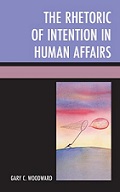 Gary C. Woodward (The College of New Jersey) has published "The Rhetoric of Intention in Human Affairs" (Lexington Books, 2013). From the publisher: "Knowing what motivates another person is a peculiar and fascinating kind of mindreading. And yet it is evidence of a very human impulse. We often use a person’s perceived sources of behavior as an ethical mirror. At other times we face the more practical problem of determining how much we can allow our life to be entwined with another. Gary C. Woodward (The College of New Jersey) has published "The Rhetoric of Intention in Human Affairs" (Lexington Books, 2013). From the publisher: "Knowing what motivates another person is a peculiar and fascinating kind of mindreading. And yet it is evidence of a very human impulse. We often use a person’s perceived sources of behavior as an ethical mirror. At other times we face the more practical problem of determining how much we can allow our life to be entwined with another.
Separate chapters cut a wide swath of analysis across a diverse range of human actors: including conspiracists using media reports to see patterns behind random events, theater performers creating “backstories” for their characters, journalists grasping to name the motives of newsmakers, prosecutors who must establish another’s intent in order to prove a criminal act, and the devout who grapple with what divine intervention can mean in a cruel world. All point to the tenacity and frailty of the impulse to know why."
MCD member recent and upcoming journal publications include:
Keshishian, F. (2013). Culture and classroom communication: A pilot study in the post Soviet Republic of Armenia. Journal of Intercultural Communication Research, 42(3), 252-274. doi: 10.1080/17475759.2013.816866
Guardino, M., & Snyder, D. (2013). The Tea Party and the crisis of Neoliberalism: Mainstreaming new right Populism in the corporate news media. New Political Science, 34(4), 527-548.
<<back to
top>>
Position Announcements
[Don't forget to check out the latest job openings on our Facebook page, updated frequently under the "Docs" menu]
Butler University
Assistant Professor
Deadline: 3 December
The Strategic Communication Department in the College of Communication, Butler University, invites applications for a new tenure-track assistant professor position, to begin August 2014. The successful candidate will support our strong undergraduate major and proposed online master’s degree program; both emphasize the merger of theory and practice as well as social responsibility.
Requirements: Ph.D. in communication-related field expected by contract start date (but an advanced ABD will be considered), evidence of teaching excellence, an ability to build connections within the professional community, and a record or promise of published scholarship.
Ideal candidates will be effective teacher-scholars who can teach public relations writing in multiple contexts and media platforms, but also a range of introductory to advanced courses in public relations and advertising, including courses in theory, research methods, campaigns, and courses related to the candidate’s area of specialization. An interest and experience in developing and implementing curricula that address multicultural issues will enhance the application.
Butler University is a comprehensive, liberal-arts based private university located in the vibrant and culturally diverse city of Indianapolis, and is committed to undergraduate teaching excellence. The university supports six colleges and 4400 students. Tenure-track faculty have a typical teaching load of 3 courses per semester. Butler offers generous financial support for research and innovative curricular development, and travel to present at conferences here and abroad.
Please send a letter of application, curriculum vitae, copies of all college transcripts (unofficial transcripts accepted for screening), current teaching evaluations, a representative research manuscript, and three faculty letters of recommendation, to:
Rose Campbell, Ph.D.
Associate Professor
Re: Strategic Communication Search
Butler University
4600 Sunset Avenue
Indianapolis, IN 46208-3485
Candidates who wish to have an informational interview at NCA may send copies of their CVs and unofficial transcripts to Rose G. Campbell by Nov. 15.
Review of applications will begin December 3 and continue until the position is filled. Consideration will be given only to complete applications.
Butler University is committed to enhancing the diversity of the student body and our faculty and staff. In addition, hiring and other employment-related decisions are made on the basis of an individual’s qualifications, past experience, overall performance and other employment-related criteria. It is the policy of the university to provide equal opportunities for employment and advancement for all individuals regardless of age, gender, race, religion, color, disability, veteran status, sexual orientation, national origin, or any legal-protected category.
<<back to top>>
Norfolk State University
Assistant Professor
Deadline: 1 December
POSITION: The AEJMC accredited Mass Communications and Journalism Department of Norfolk State University is seeking applicants for a nine-month, full-time, tenure-track faculty position at the rank of assistant professor. The position is for teaching undergraduate and graduate courses in Public Relations, Advertising, Media Sales, Strategic and Crises Communications, Society and Mass Communications, Mass Media Research and advising the department PRSSA Chapter.
RESPONSIBILITIES: Responsibilities include teaching a 9-12 hour course
load, academic advising, departmental and or college committee assignments and attending all required university functions.
QUALIFICATIONS: Ph.D. in a relevant field, bona-fide professional public relations and advertising media experience along with strong teaching, research and scholarship credentials. Familiarization with AEJMC accreditation standards and procedures is desired.
SALARY: Commensurate and competitive with qualifications regarding professional media, teaching and research experience.
EFFECTIVE DATE: August 15, 2014 or until filled
APPLICATION DEADLINE: December 1, 2013 or until closed
APPLICATION PROCEDURE: Candidates should send a letter of application, current curriculum vitae, official transcripts of both undergraduate and graduate course work and three current letters of recommendation by above date(s) to:
Dr. Wanda Brockington, Chairperson of the Department of Mass Communications and Journalism, at the above address.
Individuals with disabilities and requiring accommodation in the application process should call the Compliance/Affirmative Action Office at (757) 823-9159 (Voice) (757) 823-2876 (TDD) by February 1,2012
An Affirmative Action/Equal Opportunity University
<<back to top>>
University of Connecticut
Open-Rank
Deadline: Review in Progress (1 November)
Position Available: The Department of Communication at the University of Connecticut invites applications for a media effects scholar, open rank. The successful candidate will conduct empirical research, seek grant funding, teach both undergraduate and graduate courses on media and media effects, and perform professional service. The department is equipped with laboratory space and research equipment including facilities for investigating video game effects, online interactions and human computer interaction and interpersonal interaction. Candidates have the opportunity to affiliate with the Digital Media Center as well as the Center for Health Communication and Marketing. The Storrs campus is located in Connecticut between Boston and New York City. Direct inquiries to Kirstie Farrar (kirstie.farrar@uconn.edu). To apply, use Husky Hire (http:/www.jobs.uconn.edu) and submit a cover letter, CV, copies of relevant publications, and evidence of teaching experience. Submit three letters of reference to Cynthia.stewart@uconn.edu.
The University of Connecticut is an EEO/AA employer. See the full ad here.
<<back to top>>
University of Arizona
Assistant Professor
Deadline: Review in Progress (1 November)
The Department of Communication, University of Arizona, invites applications for an
assistant professor position in mass communication to start in Fall 2014. The unit seeks
individuals who are able to work with diverse students and colleagues and who have
experience with a variety of teaching methods and curricular perspectives. The
successful applicant will have a Ph.D. in Communication or related discipline, and
employ a social scientific approach to research that focuses on mass communication.
Evidence of a strong research program, and a record of teaching excellence are desired.
Candidates with a record or potential for obtaining external research funding are
preferred. We seek an outstanding candidate who specializes in any area of mass
communication; this may include mediated communication processes and effects;
audience formation and behavior; children and media; health-related media content;
the role of media in political systems; or the effects of new technology. Candidates
should be enthusiastic about advising graduate students.
The department is committed to empirical, social-scientific research on communication
processes, either basic or applied, making original and substantively important
contributions and is regularly ranked among the top communication research programs
in the country. More information about the communication department is at
www.comm.arizona.edu. For more information about the University of Arizona and the
city of Tucson, visit http://employment.arizona.edu/.
We will begin reviewing applications on November 1, 2013, and will continue review
until the position is filled. Salary is competitive and commensurate with
qualifications. Women and minorities are encouraged to apply. The University of
Arizona is an EEO/AA Employer-M/W/D/V.
Online application is required: apply online at: https://www.uacareertrack.com/ Job #: 53704
Necessary materials: CV, letter of interest, evidence of teaching effectiveness and three
letters of recommendation. Letters of recommendation and any other materials that
cannot be submitted online should be mailed direct to:
Ms. Tina Mendoza
University of Arizona
Department of Communication
PO Box 210025
1103 E. University Blvd.
Tucson, AZ 85721
For additional information about the position or search, please contact search
committee chair Dr. Jennifer Stevens Aubrey at
jlsa@email.arizona.edu.
<<back to top>>
Saint Xavier University
Advanced Assistant or Associate Professor
Deadline: Review in Progress (30 October)
Description: Chair, Department of Communication. Provide leadership and oversight to a growing and recently revised undergraduate Communication Major. With the assistance of the basic course coordinator, provide oversight of the Department's Speech Fundamentals course, part of Saint Xavier University's General Education Program. Teach in two or more of the Department's eight concentrations: Advertising & Public Relations, Communication Studies, Corporate Communication, Electronic Media Production & Writing, Health Communication, Journalism, Online Communication, and Sport Communication. Produce peer-reviewed research in area(s) of specialization in communication. Experience teaching basic public speaking and/or communication ethics is desirable.
Qualifications: The successful candidate will have a Ph.D. in Communication, a demonstrated record of teaching effectiveness, scholarship appropriate for the rank of associate professor, experience in undergraduate advising, and a working knowledge of instructional technology and program assessment. Administrative experience at the departmental level is desirable, but those with a keen interest in department development and management are encouraged to apply. The Department is committed to providing high quality instruction in the professional applications of communication studies grounded in the social sciences.
Start Date: 8/16/2014.
The University: Founded by the Sisters of Mercy in 1846, Saint Xavier University was the first Mercy College in the United States and is Chicago's oldest Catholic university. Serving approximately 5,300 students at its campuses in Chicago, Orland Park and at its Loop location, the University offers 35 undergraduate majors; more than 40 graduate program options in arts and sciences, business, education and nursing; and a variety of program options in continuing and professional studies. Recognizing Saint Xavier’s excellence in education, U.S. News & World Report has ranked SXU consistently among the Best Colleges in the Midwest.
Submission Process: Submit an application letter, current vita, statement of administrative philosophy, statement of teaching and research goals, official transcripts of undergraduate and graduate degree(s), and three reference letters addressing the candidate's qualifications for assuming the roles of department Chair and faculty member.
Applications should be sent to:
Elizabeth Decarlo, Office Manager
Department of Communication
Saint Xavier University
3700 West 103rd Street
Chicago, IL 60655
e-mail: decarlo@sxu.edu
Electronic applications will be accepted.
For full consideration, all application materials must be received by 10/30/2013.
Saint Xavier University is an Equal Opportunity Employer committed to diversity. EOE/M/F/D/V
<<back to top>>
University of Florida
Assistant Professor
Deadline: Review in Progress (15 October)
The Department of Telecommunication in the College of Journalism and Communications at the University of Florida seeks to hire a nine-month tenure track faculty member at the rank of Assistant Professor, to begin Fall, 2014.
Qualifications: This is a tenure track, assistant professor search. Teaching and/or research experience and interests in areas related to emerging technologies, such as social and mobile media. These include, but are not limited to: consumer adoption; digital, mobile, and social media platforms and usage; broadband applications; the relationship between emerging media and society, such as effects, regulation or policy, and content creation. We are open to any appropriate methodological and theoretical approach. An earned doctorate in mass communication or a related field is required by date of appointment. Relevant industry work experience is also preferred.
Responsibilities: The faculty member would work with graduate and undergraduate students, and faculty, by teaching courses available to students from all four departments (telecommunication, journalism, public relations, advertising). Examples of the types of courses to be taught include TV and American Society, Mass Communication and Society, and specialized courses such as Social Media Management, as well as new courses addressing the digital/emerging media developed by the faculty member. The faculty member will be initially responsible for teaching one section of a large Media and Society course. This includes teaching one section each semester, and supervising graduate assistant or adjunct instructors of additional sections. The faculty member will normally teach an additional undergraduate or graduate course each semester; summer teaching may be available based on department needs and available funds.
Tenure-track faculty are expected to conduct scholarly work (research or “creative”), and contribute to the graduate program through course instruction and/or supervision of graduate student research or projects. Teaching experience at the college or university level is desired; previous experience working with PhD students is preferred. We are also seeking someone with experience or desire to develop interdisciplinary teaching and scholarship opportunities, distance courses, and international activities. We would expect this faculty member to seek out, and collaborate with others at the University, in exploring uses and issues of emerging media as they pertain to areas such as health care. Success in securing external funding, or intention to pursue such funding, is desired.
Tenure and promotion at the University of Florida require a record of distinction in scholarship and teaching, and a satisfactory record of service. Faculty members are also expected to provide academic advising to graduate and undergraduate students in area(s) of his/her expertise, contribute to faculty governance and work in an environment of diverse students, faculty, and staff.
The Department of Telecommunication has approximately 715 majors, with specializations in News, Management, Media and Society and Management. Our faculty also participates in the M.A. and Ph.D. programs of the College of Journalism and Communications, which currently have more than 200 students working on various degrees. Our students can work under professional supervision at several broadcast facilities in the College: two commercial radio stations; an NPR-affiliate, a PBS affiliate and a low-power television station. The College is also home to departments of Advertising, Journalism, and Public Relations; The Brechner Center for Freedom of Information, The Marion B. Brechner First Amendment Project and The Jerry Davis Interactive Media Lab.
The University of Florida, one of the most comprehensive public universities in the nation, is a member of the Association of American Universities and is included in the Carnegie Commission’s list of leading research universities. UF’s students come from all 50 states and more than 100 countries. The University of Florida seeks applications and nominations from a broad spectrum of individuals including women, members of diverse ethnic groups, and persons with disabilities. The University of Florida is an equal opportunity institution. The “Government in the Sunshine” laws of the State of Florida require that all documents related to the search process be available for public inspection.
Application Procedure: This position will be open until a successful applicant pool is established. To view application instructions and complete an online resume, visit https://jobs.ufl.edu/. The requisition number for the vacancy is 0903845. Applications must include an electronic copy of the following: (1) a letter of interest; (2) complete curriculum vitae; (3) names, addresses, e-mail addresses, and telephone numbers of at least three professional/academic references; (4) statement describing teaching, advising, and scholarship goals; (5) research agenda. The Search Committee may request additional materials at a later time. If an accommodation due to a disability is needed to apply for this position, please call (352) 392-4621 or the Florida Relay System at (800) 955-8771 (TDD). Questions can only be directed to Search Committee Chair Dr. Amy Jo Coffey, P.O. Box 118400, University of Florida, Gainesville, FL 32611-8400 Telephone (352) 392-6522 or acoffey@jou.ufl.edu.
Review of applications begins October 15, 2013, and continues until the position is filled.
EOE
<<back to top>>
University of Alabama
Assistant Professor
Deadline: Review in Progress (1 October)
Full details at: https://facultyjobs.ua.edu/postings/33600
The Department of Telecommunication & Film seeks a full time, tenure-track assistant professor beginning August 16, 2014 to conduct research and teach graduate and undergraduate courses in at least one of the following areas: digital, interactive, gaming, mobile, or social media; management, law, economics, or policy; and/or media effects. The ideal candidate's scholarship should focus on empirical, social scientific research on mediated communication processes and effects.
Candidates should have an earned doctorate prior to the start date and demonstrate potential for undergraduate and graduate teaching and for developing a program of scholarship suitable for tenure consideration. Salary is nationally competitive.
Established in 1940, the Department has approximately 620 students in its undergraduate and masters programs. It is one of five academic units in the College of Communication and Information Sciences, which includes an interdepartmental doctoral program ranked seventh nationally and the Institute for Communication and Information Research that includes a survey lab, a psychophysiology lab, a focus group lab, a child media lab, a content analysis lab and a theatre. The College operates the professional production facilities of the state's Center for Public Television and Radio, award-winning Alabama Public Radio, student radio station WVUA-FM, and Tuscaloosa's primary commercial television station WVUA-7 that serves the Birmingham-Tuscaloosa market. The University of Alabama, established in 1831 in Tuscaloosa, is currently rated seventh among public universities in the nation by the Center for College Affordability and Productivity as reported in Forbes. It has approximately 33,000 students, including 4,500 graduate students in over 120 masters and doctoral programs and a Carnegie classification of "Doctoral/Research Universities Extensive." Tuscaloosa is a university-oriented community of nearly 100,000 located about fifty minutes southwest of Birmingham, in the nation's 40th television market. It is a short drive from the Smoky Mountains, Gulf Coast beaches, New Orleans, Nashville, and Atlanta.
Additional information about the Department, the College and the University, is available at www.tcf.ua.edu. Telephone inquiries (205-348-8653) and e-mail (szhou@ua.edu) are welcome.
Visit https://facultyjobs.ua.edu to apply. Attach an application letter, vita/resume and names, addresses and phone numbers of three references. Screening of applications begins October 1; however, applications will be accepted until search is completed.
UA is an Affirmative Action/Equal Opportunity employer. Women and minorities are especially encouraged to apply.
<<back to top>>
NCA's RFP Tracker - Opportunities for Mass Communication Research
NCA's RFP Tracker identifies funding opportunities (including research grants, residential fellowships, travel funds, awards, etc.) for communication scholars. There are many grant opportunities for those interested in mass communication research. The RFP Tracker lists funding and fellowship opportunities for graduate students, post-docs, faculty, and people outside of the academy. Check out the RFP Tracker website at http://www.natcom.org/index.asp?bid=10977 and download the most recent report.
<<back to top>>
NCA looking for Subject Matter Experts for national database
Jennifer Glicoes of the National Communication Association main office is looking for MCD members interested in serving as Subject Matter Experts to be contacted by news media organizations. If you are interested in this opportunity, please e-mail Jennifer (jglicoes@natcom.org) with the following information:
- Name and affiliation
- Email address
- Telephone number
- Brief 300 word biography
- Names of any relevant publications (3-5)
- Names of any relevant courses you teach
<<back to top>>
NCA MCD OFFICERS
| 2012-2013 MCD Officers |
 Chair Chair
Dana Mastro
Department of Communication
University of California-Santa Barbara
5004 Social Sciences & Media Studies Bldg.
Santa Barbara, CA 93106-4020
mastro@comm.ucsb.edu
(805) 893-5550 |
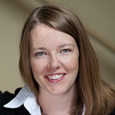 Vice Chair Vice Chair
Jennifer Stevens Aubrey
Department of Communication
University of Missouri-Columbia
203B Switzler Hall
Columbia, MO
65211
aubreyj@missouri.edu
(573) 882-0739 |
 Vice Chair-Elect Vice Chair-Elect
Srividya Ramasubramanian
Texas A&M University
Department of Communication
211 Bolton Hall
College Station, TX 77843
srivi@tamu.edu
(979) 845-5178
|
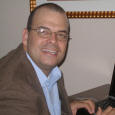 Past Chair Past Chair
Adam Earnheardt
Youngstown State University
Department of Communication
1 University Plaza
Youngstown, OH 44555
acearnheardt@ysu.edu
(330) 941-1845 |
 Secretary Secretary
Andrew Weaver
Indiana University
Department of Communication
Radio-TV Center, Room 306
Bloomington, IN
47405
weaveraj@indiana.edu
(812) 856-2552
|
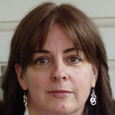 Secretary-Elect Secretary-Elect
Lisa Barry
LaGuardia Community College
Department of Humanities
31-10 Thomson Ave E200
Long Island City, NY 11101
LBarry@lagcc.cuny.edu
(718) 349-4071
|
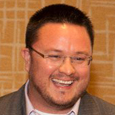 Publications & Web Editor (expires '15) Publications & Web Editor (expires '15)
Nicholas David Bowman
West Virginia University
Communication Studies
108 Armstrong Hall
Morgantown, WV 26501
Nicholas.Bowman@mail.wvu.edu
(304) 293-3905
|
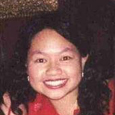 Graduate Student Rep. Graduate Student Rep.
Jenny Ungbha Korn
University of Illinois at Chicago
Department of Communication (MC 132)
1007 West Harrison Street
Chicago, IL 60607-7137
jenkorn@uic.edu
(312) 996-3187
|
| Research Committee |
 Chair ('13) Chair ('13)
David Rhea
Governors State University
Communication Studies
University Park, IL 60484
drhea@govst.edu
(708) 534-4392
|
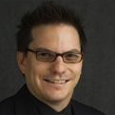 Chair ('14) Chair ('14)
Brent Malin
University of Pittsburgh
Department of Communication
1109L Cathedral of Learning
Pittsburgh, PA 15260
bmalin@pitt.edu
(412) 624-6798 |
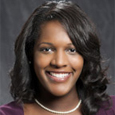 Chair ('15) Chair ('15)
Meagan Sanders
Louisiana State University
Manship School of Mass Communication
217A Journalism Building
Baton Rouge, LA 70803
msand@lsu.edu
(225) 578-7380
|
 Chair ('16) Chair ('16)
Hugh Phillips Curnutt
Montclair State University
Communication Studies
Life Hall 225A
Montclair, NJ 07043
curnutth@mail.montclair.edu
(973) 655-4464
|
| Nominations Committee |
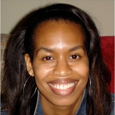 Committee Chair (expires '13) Committee Chair (expires '13)
Siobhan Smith
University of Louisville
Department of Communication
siobhan.smith@louisville.edu
(502) 852-6976 |
 Committee (expires '13) Committee (expires '13)
Rick Busselle
Bowling Green State University
College of Media & Communication
314 West Hall
busself@bgsu.edu |
 Committee Chair (expires '14) Committee Chair (expires '14)
Kara Gould
John Brown University
Department of Communication
2000 West University Street
Siloam Springs, AR 72761
KGould@jbu.edu
(479) 524-9500
|
 Nominations Committee (expires '14) Nominations Committee (expires '14)
Andrew Weaver
Indiana University
Department of Communication
Radio-TV Center, Room 306
Bloomington, IN
47405
weaveraj@indiana.edu
(812) 856-2552
|
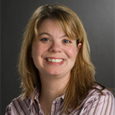 Nominations Committee (expires '14) Nominations Committee (expires '14)
Tracy Worrell
Rochester Institute of Technology
3041 Eastman Hall
Rochester, NY 14623-5604
Tracy.Worrell@rit.edu
(585) 475-2298
|
|
| Representatives to NCA General Assembly |
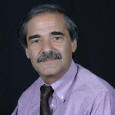 Legislative Assembly Legislative Assembly
Stan
Tickton
Norfolk State University
Mass Communication/Journalism
700 Park Ave., Unit 3249
Norfolk, Virginia 23504
stickton@nsu.edu
(757) 823-2383 |
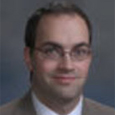 Legislative Assembly Legislative Assembly
Shane Tilton
Ohio University
Electronic Media
250 Elson Hall
Zanesville, OH 43701
(740) 453-0762 |
|



